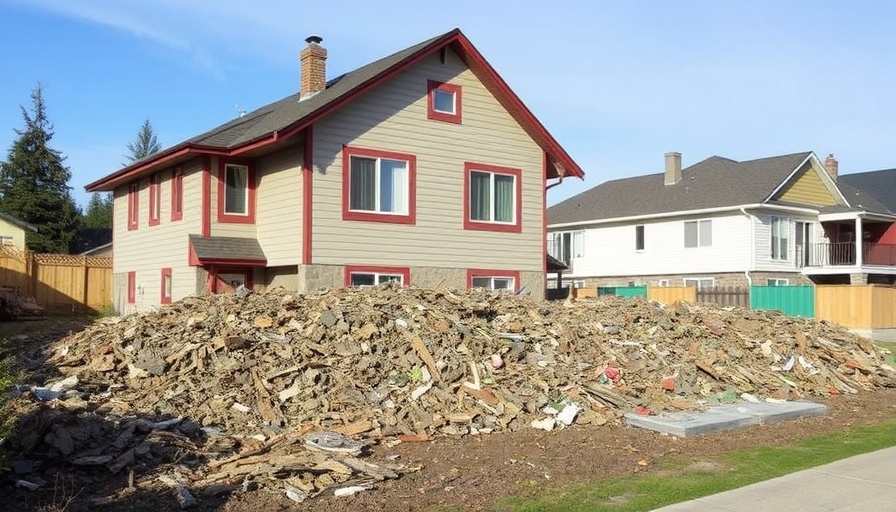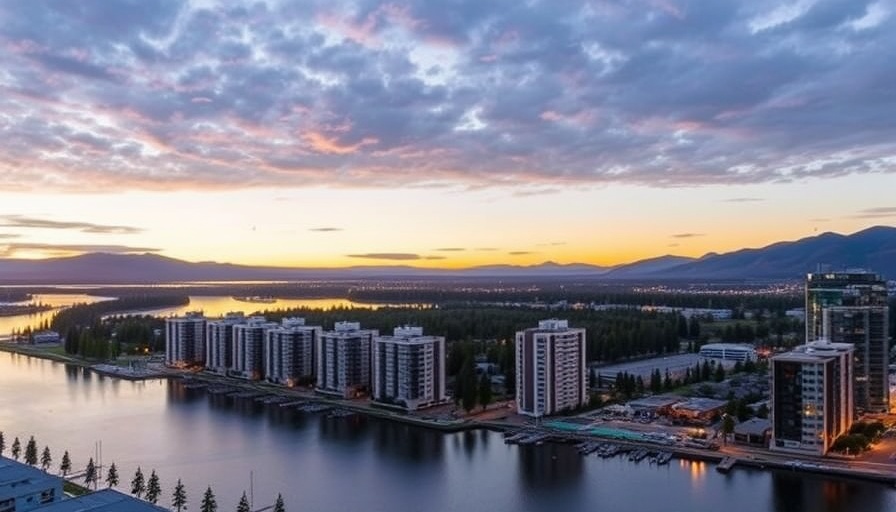
Why Are Homes Being Demolished in Kelowna?
Over the past couple of years, a surprising trend has unfolded in Kelowna: perfectly good homes are being bulldozed to make way for new developments. In the timeframe from 2021 to 2022 alone, 1,330 single-family homes met the bulldozer. This isn't just a flash-in-the-pan situation; the city anticipates a staggering 35% increase in these demolitions over the next decade as high-density redevelopment projects, like apartment complexes and townhouses, rise across the city. This growing phenomenon prompts a crucial question: Is it truly progress when houses filled with potential are sacrificed for new constructions?
The Need for Redevelopment in Kelowna
This redevelopment push comes in response to the ongoing housing crisis in many urban areas, including Kelowna. With its booming population, there’s a pressing need for more housing options. The rise in apartment buildings and four-plexes is reshaping the Kelowna skyline, reflecting a trend toward higher density living. However, this trend necessitates the removal of older homes, many of which remain structurally sound.
The Economics of Eviction: What's at Stake?
According to Glyn Lewis, the CEO of Renewal Development, there is a pressing call for a more sustainable approach to managing these homes slated for demolition. "There is still so much life in many of these homes and we are just throwing them away," he emphasized, calling for municipalities to explore alternatives to demolition, such as relocation or recycling of materials. Every year, a surprising 20% of homes demolished could be in good condition for relocation, and an additional 40-60% could be salvaged for materials. This represents not just lost homes but wasted resources.
Challenges of Relocation: A Complex Issue
While the idea of relocating homes is appealing, it isn't without significant challenges. City planner Ryan Smith noted that the logistics of moving these homes can be daunting. Factors such as the costs of transportation, the need to navigate urban infrastructure, and the question of where to place these homes further complicate the situation. Moreover, the community must address these logistical obstacles in a way that makes relocation feasible.
Building Sustainable Futures: Alternative Solutions
The collaborative efforts between Renewal Development and Light House suggest forward-thinking solutions that municipalities can adopt. They advocate for the implementation of a pre-demolition assessment to evaluate the viability of home relocation or deconstruction. Furthermore, proposing a refundable deposit on developers and permitting green removal processes could promote the salvaging of homes before demolitions.
Broader Perspectives: Why This Matters
This issue isn't just about homes — it strikes at the heart of community, sustainability, and economic responsibility. Many Kelowna residents are watching as their familiar neighborhoods transform rapidly, punctuated by construction noise and the disappearance of beloved houses. What's needed is a collective rethinking of how we approach urbanization and housing development.
Empowering Community Voices: The Role of Collaboration
Community engagement in this redevelopment narrative is not merely desirable; it is essential. Increased dialogue among city planners, developers, and residents can enable a collaborative approach that fosters a balance between progress and preservation. The local development community appears open to ideas that promote both the recovery of homes and the recycling of materials, signifying a shift towards a more responsible development paradigm.
Conclusion: Moving Forward With Awareness
The demolitions happening in Kelowna present a complex tapestry of opportunity and loss. While urban growth is critical, so too is the critical examination of how we approach this challenge. Residents, city officials, and developers must work together to devise strategies that support both sustainable development and community integrity. You can play a role in this dialogue—stay informed and engage with local discussions about housing and urban development.
 Add Row
Add Row  Add
Add 




 Add Row
Add Row  Add
Add 

Write A Comment